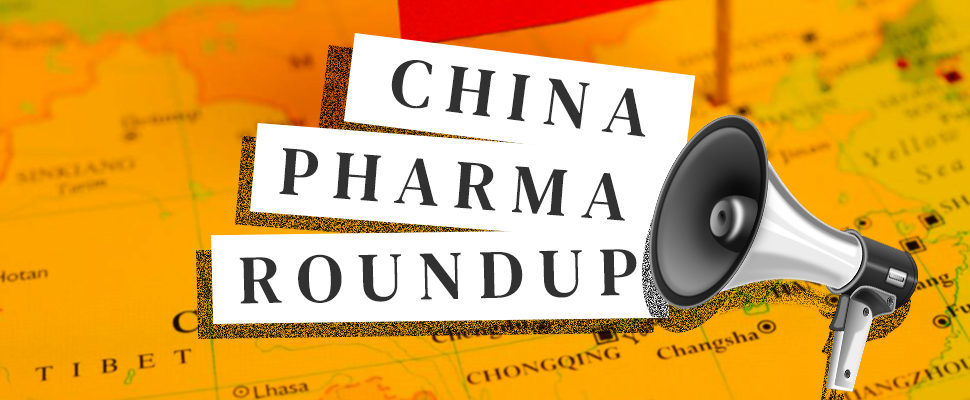A roundup of some of the biggest pharma industry news from China, including Fosun’s bid for Henlius Biotech; the revision of the US’s Biosecure Act to provide more time for cutting ties with China; Baili Tianheng’s second Hong Kong listing; Hasten’s acquisition of asset rights for 14 products from Celltrion, and the AbbVie/FutureGen IBD licensing agreement.
China’s Fosun offers to buy out Henlius Biotech, valuing drugmaker at $1.71 bln (Reuters)
Chinese conglomerate Fosun International will buy the remaining stake in Shanghai Henlius Biotech it does not already own in a deal that values the Hong Kong-listed drugmaker at HK$13.37 billion ($1.71 billion), the companies said on Monday. Fosun International is one of the country’s biggest listed conglomerates, with a portfolio of diverse set of companies, carrying out operations from retail to real-estate.
US bill to restrict WuXi AppTec, Chinese biotechs revised to give more time to cut ties (Reuters)
A new version of a congressional bill that would restrict U.S. business with certain Chinese biotechnology companies including WuXi AppTec and BGI would give U.S. companies until 2032 to end work with the firms, extending the amount of time to find new partners.
The latest Biosecure Act also adds WuXi Biologics to a list of biotech companies of concern, according to a copy seen by Reuters. The other companies on the list are BGI, MGI, Complete Genomics and WuXi AppTec.
US lawmakers ask FBI for briefing on GenScript Biotech’s links to China (Reuters)
The U.S. House of Representatives committee on China has asked the FBI and the intelligence community for a briefing on GenScript Biotechnology Co (1548.HK), opens new tab and three subsidiaries to determine if the Chinese Communist Party has influence over their operations.
In a letter dated May 30 to the FBI and the U.S. office of the director of national intelligence, committee chair John Moolenaar and ranking member Raja Krishnamoorthi said GenScript’s work with U.S. companies and the government raises concerns about the intellectual property of U.S. firms and could help improve China’s biotech capabilities.
Novo Nordisk’s Wegovy weight-loss drug approved in China (Reuters)
Behind Baili Pharma’s Second Listing in Hong Kong (Yaozh, in Chinese)
Western companies drive Chinese biotech licensing deal blitz (Financial Times)
Western pharmaceutical companies and investors are driving a record number of licensing deals with Chinese drugmakers that have insufficient capital to fund late-stage drug development and global expansion. Merck, GSK and AstraZeneca have all signed licensing deals in a wave of biotech investment that hit a record $44.1bn last year, according to UBS research. The momentum has been sustained in 2024, with $9.8bn worth of biotech licensing deals signed in the first quarter.
Western pharma companies are seeking to expand their product pipelines as they confront patent expiries of lucrative drugs in the coming years, while Chinese drugmakers are struggling to raise funds domestically for drug development and clinical trials during a stock market slump. A Hong Kong-listed index of 50 “innovative” biotech stocks has fallen 57 per cent over the past three years.
Chinese startup Hasten Biopharma buys 14 products from Korean firm Celltrion (BioSpectrum Asia)
China-based startup Hasten Biopharmaceutical has successfully acquired the asset rights of 14 branded products across Pan-Asia countries and regions from Celltrion, a Korean biopharmaceutical company.According to the agreement, Hasten will also own the Marketing Authorisation Holder (MAH) rights for these products in 8 countries and regions, including South Korea, Singapore, Thailand, Australia, China Hong Kong S.A.R.
The deal will enrich Hasten’s product pipeline across 8 countries and regions outside mainland China, combined with more qualified global supply chain and a quality management system, which will surely pave the way for access to more high-quality products in the Pan-Asia Area.
AbbVie inks deal worth $1.56 B with China’s FutureGen to develop IBD therapy (BioSpectrum Asia)
US-based firm AbbVie and FutureGen Biopharmaceutical (Beijing) have announced a license agreement to develop FG-M701, a next generation TL1A antibody for the treatment of inflammatory bowel disease (IBD) currently in preclinical development.
FG-M701 is a fully human monoclonal antibody targeting TL1A, a clinically validated target in IBD. FG-M701 is uniquely engineered with potential best-in-class functional characteristics compared to first-generation TL1A antibodies with the goal to drive greater efficacy and less frequent dosing as a therapy for IBD.
Chinese biotech firm MGI Tech partners with French startup SeqOne for advanced genomic analysis (BioSpectrum Asia)
China-based biotech company MGI Tech Co. has partnered with France-based startup SeqOne, a leading provider of AI-powered software to support genomic information-based decision-making to develop complete solutions for genomic science.
The collaboration between a pathology reference laboratory in Spain, Agilent Technologies, MGI and SeqOne aims at the technical validation of a routine workflow using Agilent Panels, Magnis lib prep automation, MGI DNBSEQ-G99 and SeqOne somaHRD, a clinically validated HRD signature solution, for 96 samples.
China’s NMPA visits US in first senior-level meeting at FDA HQ since 2017 (Fierce Pharma)
Deputy Commissioner Zhao Junning of China’s National Medical Products Administration met with FDA Deputy Commissioner Kim Trzeciak Tuesday in the first senior-level meeting between the two agencies at FDA’s headquarters since 2017. The two agencies discussed the 2007 FDA-SFDA China Agreement on the Safety of Drugs and Medical Devices, including their 2024 work plan, according to the FDA.



